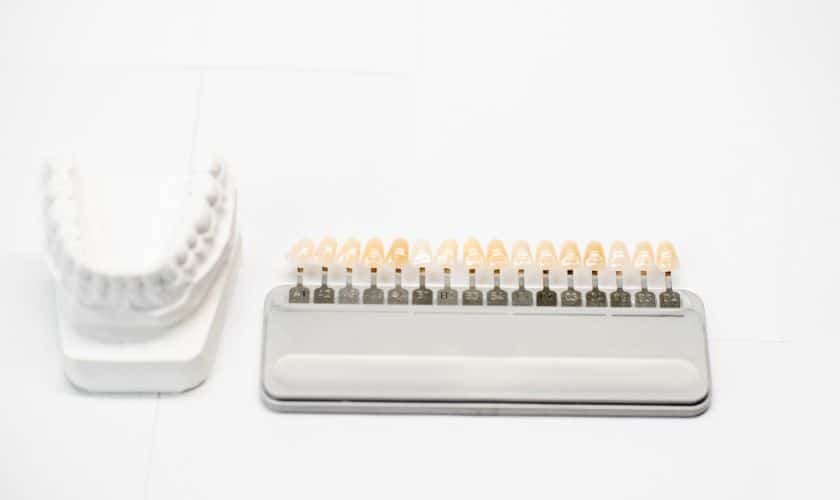
Veneers vs. Lumineers: Which One Should You Choose?
Are you looking to enhance the appearance of your teeth and achieve a stunning smile? Dental veneers and Lumineers are two popular options that can help you achieve just that. However, with so many choices out there, it can be challenging to determine which one is best for you. In this blog post, we’ll explore the differences between veneers vs. Lumineers and help guide you toward making an informed decision on which option is right for you.
Exploring the Different Types of Dental Veneers and Lumineers
Having a nice smile can increase your self-confidence and make a great first impression. If you’re considering getting dental veneers, you may be wondering what kind of veneers are right for you. In this blog post, we’ll compare two popular types of veneers: dental veneers and Lumineers. We’ll discuss the key differences between them and help you decide which type of veneer is right for you.
Dental veneers are thin, custom-made shells that are attached to the front of your teeth. They can be made from porcelain or composite resin material. Porcelain veneers are more durable and natural-looking than composite veneers, but they’re also more expensive. Lumineers are a type of porcelain veneer that’s even thinner than traditional porcelain veneers. Lumineers don’t require any drilling or tooth preparation, so they’re less invasive than other types of veneers. However, Lumineers aren’t as strong as traditional porcelain veneers, so they may not be suitable for everyone.
Understanding the Differences Between Veneers and Lumineers
When it comes to cosmetic dental procedures, there are a lot of options to choose from. Two popular choices are veneers and lumineers. But what’s the difference between the two?
Veneers are thin, custom-made shells that are designed to cover the front surface of your teeth. They can be made from porcelain or composite resin material. Lumineers are also thin, custom-made shells that are designed to cover the front surface of your teeth. However, lumineers are made from a ceramic material that is thinner than traditional veneers.
One of the main differences between veneers and lumineers is the amount of prep work involved. Veneers require that a small amount of tooth enamel be removed in order for them to be placed. Lumineers, on the other hand, do not require any prep work and can be placed directly over your existing teeth.
Another difference between veneers and lumineers is the length of time they last. Veneers typically last 10-15 years before they need to be replaced, while lumineers can last up to 20 years before they need to be replaced.
So which one should you choose? Ultimately, it depends on your individual needs and goals. If you’re looking for a more permanent solution with little prep work involved, then veneers may be the better choice for you.
Pros and Cons of Using Veneers vs. Lumineers
There are many reasons why you might want to consider veneers or Lumineers for your smile makeover. But which one is right for you? Here, we will explore the pros and cons of using veneers vs. Lumineers so that you can make an informed decision about which treatment is best for you.
Veneers are made of porcelain and are bonded to the front surface of your teeth. They are very thin (about 0.5 mm) and provide a natural-looking option for improving the appearance of your smile. Veneers can be used to correct a wide variety of cosmetic concerns, including stained or discolored teeth, chipped or cracked teeth, misshapen teeth, and gaps between teeth. They can also be used to change the size, shape, and color of your teeth.
Lumineers are also made of porcelain but are much thinner (about 0.2 mm) than veneers. Lumineers are placed over the existing tooth structure and require minimal preparation of the tooth surface before placement. Lumineers can be used to correct many of the same cosmetic concerns as veneers but may not be suitable for every patient.
Considering Treatment Options: Which is Right for You?
When it comes time to improve your smile, you have a lot of options to choose from. But two of the most popular treatment options are veneers and Lumineers. So, which one should you choose?
Veneers are a thin layer of material that is placed over the front surface of your teeth. They can be made from porcelain or composite resin, and they are custom-made to match the color of your natural teeth. Lumineers are also a thin layer of material that is placed over the front surface of your teeth. However, they are made from a durable ceramic material that is incredibly thin (about half the thickness of traditional veneers). Lumineers are also custom-made to match the color of your natural teeth.
So, which one is right for you? The answer depends on a few factors. For example, if you have severely stained teeth, then veneers may be the best option because they can completely cover up the discoloration. If you have minor stains or slight gaps in your teeth, then Lumineers may be a better option because they allow some of your natural tooth structure to show through.
Ultimately, the best way to decide which treatment option is right for you is to consult with a qualified dentist who can assess your individual needs and recommend the best course of action.
Aftercare Guide for Your Veneers or Lumineers
Veneers and Lumineers are both popular options for people looking to improve the appearance of their smile. But which one is right for you?
Veneers are made of porcelain or composite material and are bonded to the front of your teeth. Lumineers are also made of porcelain, but they’re thinner and less likely to require the removal of natural tooth structure.
Both veneers and Lumineers can give you a beautiful, natural-looking smile. But there are some important differences to consider before you make a decision.
Veneers vs. Lumineers: Aftercare Guide
If you’ve decided to get veneers or Lumineers, congratulations! You’re on your way to a beautiful new smile. Here’s what you need to know about aftercare:
Brushing and flossing: Be sure to brush twice a day and floss once a day. It’s especially important to avoid getting plaque build-up around your veneers or Lumineers, so be sure to brush thoroughly along the gum line. You may find that an interdental brush (a small, bristled brush that fits between teeth) is helpful in getting rid of plaque in hard-to-reach places.
The Bottom Line
In the end, it is important to remember that both veneers and Lumineers can be great options to improve your smile. It all depends on what works best for you and which one fits better into your budget. Ultimately, the decision will come down to cost, desired results, and overall lifestyle habits. Consider these factors before deciding between veneers or Lumineers so you can walk away looking your very best with a beautiful smile that lasts.
Veneers are made of porcelain or composite resin and are bonded to the front surface of your teeth. Lumineers are also made of porcelain, but they’re thinner and require minimal preparation of the tooth surface before bonding.
Lumineers tend to be more expensive than veneers because they require special training and equipment to create. Additionally, because Lumineers are thinner than veneers, they may not last as long.
The best way to decide if veneers or Lumineers are right for you is to consult with a dental professional who can assess your individual needs and make a recommendation.




